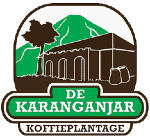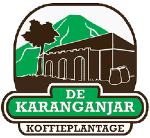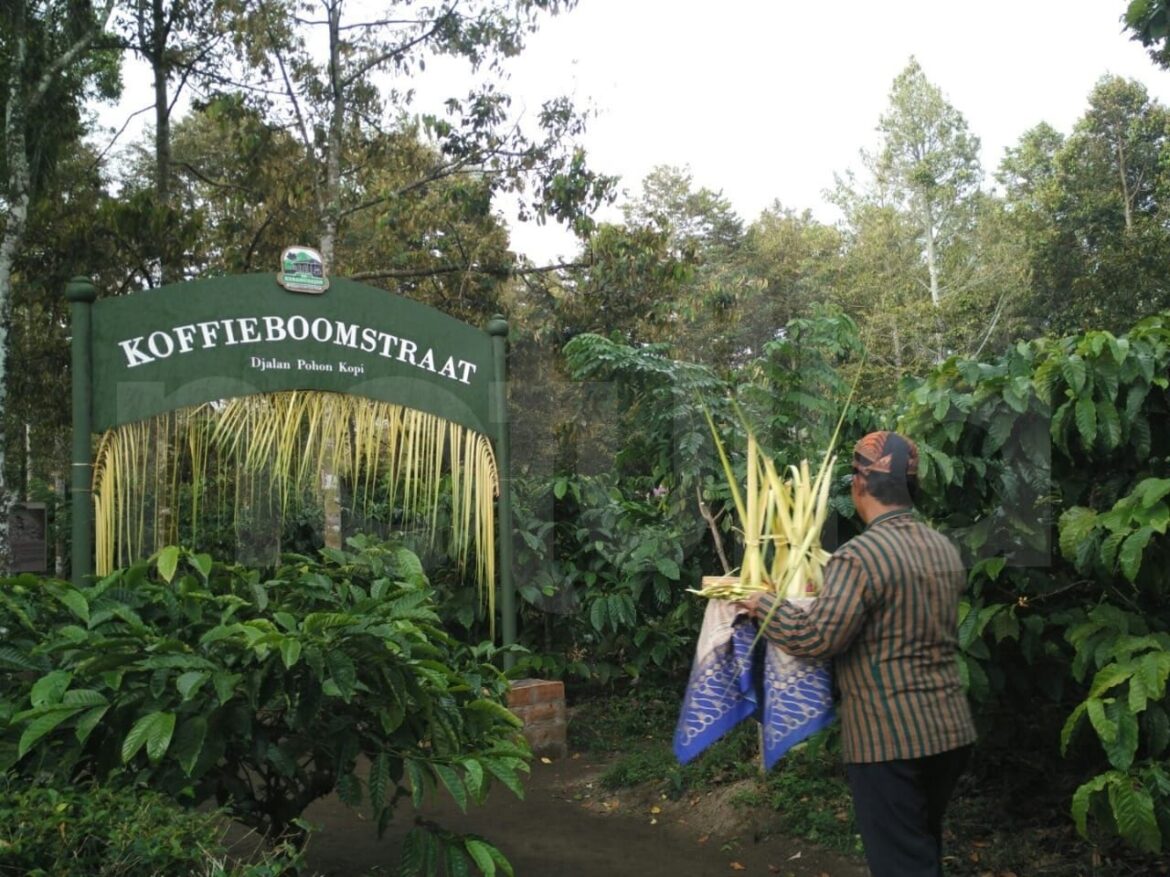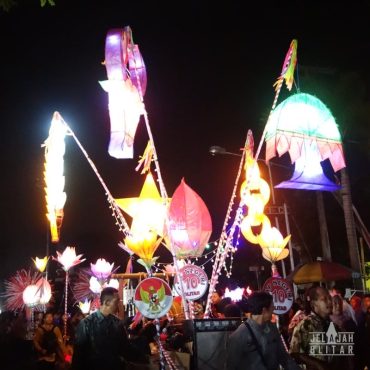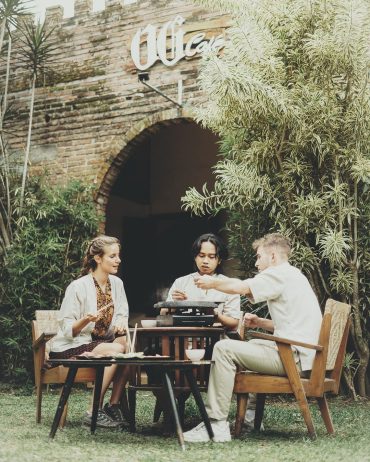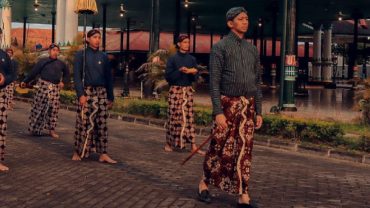Have you ever paid attention to the customs, traditions or cultures around you? How does a tradition affect the lives of the people in your neighbourhood?
Community life is inseparable from the existence of local wisdom or local genius. Local wisdom is the knowledge and understanding that a community group has about its environment and how to utilise it for daily life.
Blitar, a small city in East Java, also has a variety of local wisdom that is still maintained by the community today.
Here are 6 local wisdoms that can still be found in Blitar today.
- Manten Coffee

Manten Coffee Manten Coffee adalah ritual yang dilakukan di Kebun Coffee Karanganyar, Desa Modangan, Kecamatan Nglegok, Kabupaten Blitar.
Ritual ini mempertemukan coffee tangkai lanang (laki-laki) dan wadon (perempuan) yang kemudian dibungkus dengan kain mori.
Ritual ini menjadi agenda penanda dimulainya panen raya coffee di perkebunan peninggalan Belanda itu. Perkebunan coffee biasanya menggelar event manten coffee setiap bulan Juni atau Juli.
Manten coffee ini sudah ada sejak perkebunan ini berdiri pada tahun 1874 oleh Belanda. Ritual ini merupakan cara bagaimana mereka menunjukkan rasa terima kasih mereka untuk musim panen dan juga doa untuk panen yang melimpah, sehingga manajemen, staf, dan penduduk setempat dapat memperoleh manfaatnya.
- Larung Sesaji
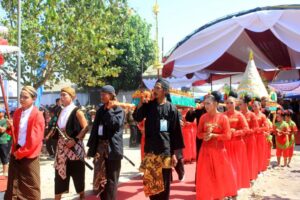
Photo. Kemdikbud.go.id
One of the famous local wisdoms in Blitar is the Larung Sesaji tradition. This tradition is carried out by the people of the coastal area of Tambakrejo Beach, Wonotirto District, Blitar Regency, every 1 Suro or 1 Muharram and is attended by the Blitar Regent.
This tradition is carried out as a form of thanksgiving for God's favour in the form of sustenance, safety, and abundant resource wealth.
This tradition is characterised by bringing produce and cow heads to the dock to be floated about 3 kilometres out to sea.
- Grebeg Pancasila
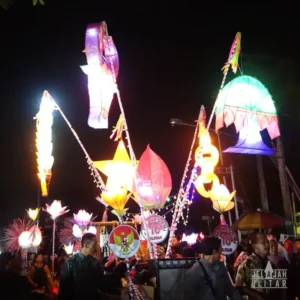
Grebeg Pancasila is a cultural ceremony that is routinely held to commemorate the birthday of Pancasila, which is annually held on 31 May and 1 June.
This tradition is an expression of disappointment by the artists and cultural workers of Blitar City regarding the elimination of the commemoration of Pancasila Day on 1 June.
To realise this, in 2000 the government officially started a tradition to commemorate the birth of Pancasila under the name Grebeg Pancasila.
As for the implementation, this tradition consists of five rites namely Bedhol Pusaka, Tirakatan (Macapatan), Cultural Ceremony, Kirab Gunungan Lima and Kenduri Pancasila.
- Siraman Gong Kyai Pradah
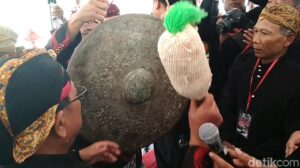
Gong Kyai Pradah is a sacred heirloom in Blitar Regency. This gong is routinely purified every year in the month of Maulid and has been done for generations in Sutojayan District.
This tradition is a process of bathing an heirloom object, namely Gong, with flowers, so that it becomes a special attraction for the wider community.
The purpose of this activity is to preserve the nation's culture as an ancestral heritage, as well as a traditional ceremony to prosper the community and bring good luck to anyone who follows it.
- Puppetry
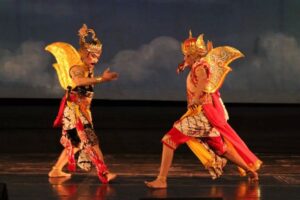
Photo. Kompas.com
Wayang Wong, also known as Wayang Orang, refers to puppets that are played using people as characters in the puppet story.
Wayang orang is included as one of the art forms of literature, because it contains elements of art, such as dance, music, drama, and sound.
Wayang Orang performances in Blitar are usually organised by the Blitar City Tourism and Culture Office in collaboration with the Regional Liaison Agency of East Java Province. The show is usually held at the Aryo Arts Building in Blitar.
- Jamasan Keris Umyang Jimbe
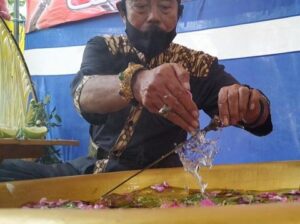
Photo. detik.com
Jamasan Keris Umyang Jimbe is a tradition carried out by the people in Blitar, East Java to purify the heirlooms inherited from the ancestors.
This tradition is usually held every Suro month, on Thursday Kliwon or Friday Legi night. This tradition is carried out at the Kekunaan Jimbe Site.
On the day of the event, since morning, the gate of this site has been installed yellow janur as a symbol of a big celebration. In fact, several keris owned by Blitar residents were also tamed or consecrated at this site.
By keeping and preserving local wisdom, we not only maintain our cultural identity, but also promote tourism and enrich people's lives.
Let's appreciate and preserve the local wisdom in our respective regions. Happy exploring Blitar!
